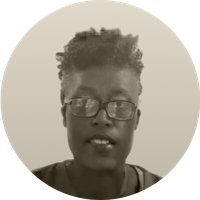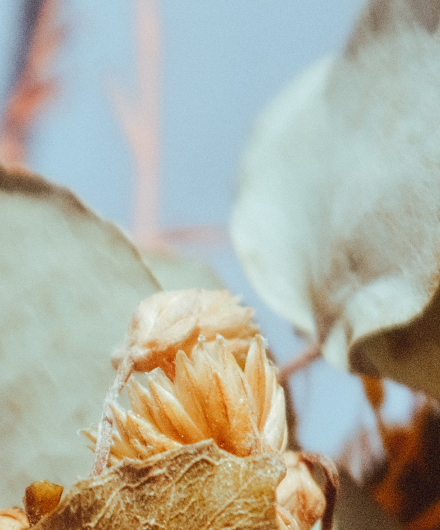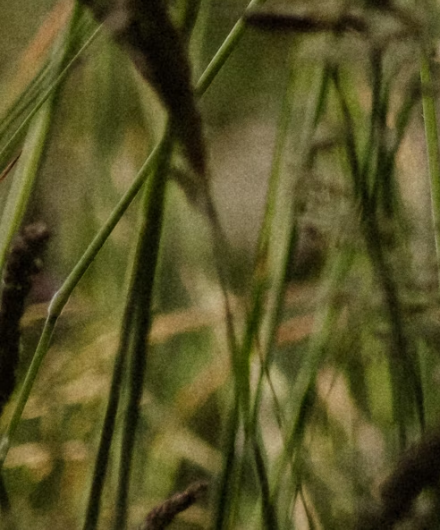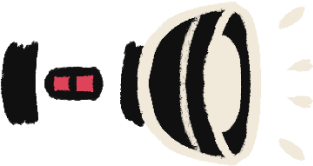
Justice throughKenya’s eyes

Justice throughKenya’s eyes
It is very significant to me, because I get to reflect on my experiences, and see where I’ve grown. And all the things that I have learned and also to look at the experiences of other women, I think it’s very crucial that we, you know, process experiences of other women as well. So the feminist circle helped me to do that, and to see where other women have, either they struggled in some of the same areas and how they’ve overcome. And so it helps to encourage me to go further in my growth process, and to not get discouraged when I don’t see the growth that I think I should see at the process where I am. You know, so it’s, it’s very significant to me.
Um I think the public should know that. This experience is even though we have our own experiences, they’re different. The uniforms, they’re not tailor-made. I mean, a lot of people out there share same experiences, they just didn’t come, didn’t take our path. I think that the community at large should know that our our struggles in here are way different from men. And I think that we don’t get a lot of exposure when it comes to our experiences. And I think that the community should know that we are, we have a voice. And that is worth listening to. And we have a lot of experience and a lot of things that we can share with our community. Instead of us looking like the problem, we’re actually a solution.

AudioKenya’s interviewPT.1 — We have a voice.

AudioKenya’s interviewPT.2 — Fighting for yourself.

AudioKenya’s interviewPT.3 — A better life.
I mean, it’s phenomenal. I mean, it has it’s ups and downs, because unfortunately, well I want to share the positive part of it first, before I get into kind of like the negative part of it. But the positive part, I mean, there are two women that I have and they are lifers - Sara Allen, and Courtney Robertson. And I learned so much with them from them at the beginning because I’ve always wanted to be an attorney before I even became incarcerated or impacted by the justice system, but they really taught me to have the passion and the fire, that I have to get justice for people to advocate for justice on every level. Because they didn’t care what a person was in prison for what they’ve done, you know, that they didn’t care about that they just wanted to help. They just wanted to, you know, be someone that could give someone hope and help. And I learned a lot from them. I learned a lot about the craft, about actually researching and formulating grounds and going the extra mile because I saw them go an extra mile for everybody regardless of their sentence yeah they was sitting on two life sentences apiece, but they didn’t care, they still helped the person that had five years or two years or 10 or 30. So I just I saw their drive and I and I we try to encourage one another even though I’m not incarcerated with them, I’m not at the same facility as them anymore. But I try to I try to encourage other women here to get into the Law Clerk Training Program. You know, focus on, help yourself first and then get the information and knowledge you need to help other women because that’s what it’s about. Like that’s what it’s about your time is not you’re not doing your time for you. You know you’re paying your debt.
![]()
Kenya’s interview 00:39
And so and then the encouragement that I get to other women to, to actually pursue a law clerk, you know, law clerk certification, so that we can have more people in here, you know, with the desire to help other people, you know, but I think it first starts with trying to help your yourself, you know, and fighting for yourself. I always encourage people to fight for yourself, fight for, you know, your medical, better medical care, you know, if you if something happens in the chow hall, and if they do something to your food, you know, that you don’t like, screeve it. You know, fight for yourself and learn how to fight for you so then that will give you the passion to maybe fight for others, you know, so that things could be better for everybody. You know, so that’s why I try to do. Because that’s how I...I was encouraged to do that when I first got to prison. But that’s what I tried to do.
![]()
Yes, I am trying to, try to, try to figure out ways to do a better, you know. Inspire to get better and better. And that’s why I love the term justice advocate, because it’s so true, because we’re fighting for justice on every level, not just in the courts, but here in the prisons to give people a better life in here. This is where we have to be. This is our, you know, the product of our consequences, and we’re paying our debt to society, true enough. And I understand that completely. But the type of care that we get in here, we should be able to be treated, you know, humanely, because there are some constitutional rights that we don’t lose when we come in here. And so we should be able to get the health care and medical care that we need. So that’s, that’s imperative.
I think the major barrier is something that I already spoke about, which is the resources like, you know, the resources are very limited. You know, LexisNexis is very good. However, they don’t update our systems here like they should. So we don’t get the most recent cases. Yeah, we might get Florida Law Weekly, and I’m speaking about, you know, Florida, because that’s really all I know. But we may get some Florida Law Weeklys, but we don’t get that mail, we use snail mail, so we don’t get updated versions of the books to research in. So that is a barrier, you know, we want the most updated information that we could possibly use. Because it could be crucial to arguing something, we don’t know if a new law has come out, that may be beneficial or may be harmful to someone that we’re fighting for.
